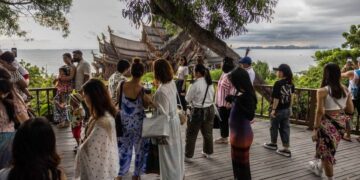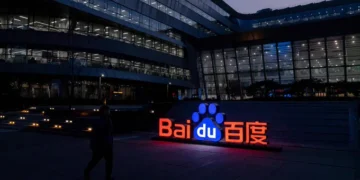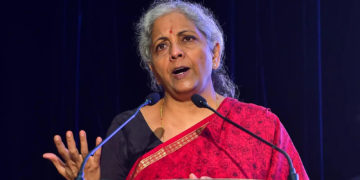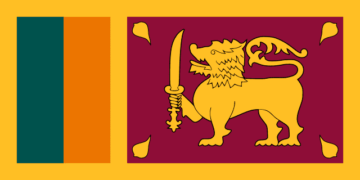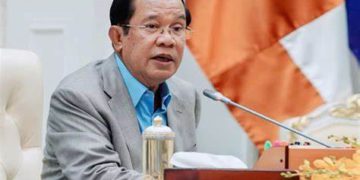MYANMAR: Protesters returned to the streets of Myanmar on Wednesday, this time their demands go beyond reversing the coup. They are seeking the abolition of a 2008 constitution drawn up under military supervision that gave the generals a veto in parliament and control of several ministries, and for a federal system in ethnically diverse Myanmar.
“We cannot stay quiet,” youth leader Esther Ze Naw told media. “If there is blood shed during our peaceful protests, then there will be more if we let them take over the country.”
In the capital Naypyitaw, hundreds of government workers marched in support of a growing civil disobedience campaign, which was started by health workers. Thousands of people joined demonstrations in the main city of Yangon.
A doctor in Naypyitaw said a woman who was shot in the head with a live bullet, when police fired guns, mostly in the air, remained in a critical condition but was not expected to survive. Three other people were being treated for wounds from suspected rubber bullets, doctors said.
Protesters were also hurt in Mandalay and other cities, where security forces used water cannon and arrested dozens. State media reported injuries to police during their attempts to disperse protesters, who were accused of throwing stones and bricks.
The United States and United Nations condemned the use of force against protesters. The US State Department said it was reviewing assistance to Myanmar to ensure those responsible for the coup face “significant consequences”.
“We repeat our calls for the military to relinquish power, restore democratically elected government, release those detained and lift all telecommunication restrictions and to refrain from violence,” spokesman Ned Price said in Washington.
The United Nations called on Myanmar’s security forces to respect people’s right to protest peacefully and said “The use of disproportionate force against demonstrators is unacceptable,” Ola Almgren, the UN representative in Myanmar, said.
Avinash Paliwal, a senior lecturer in international relations at the School of Oriental and African Studies at the University of London, said Myanmar will not be as isolated now as it was in the past, with China, India, ASEAN and Japan unlikely to cut ties.
“The country is too important geo-strategically for that to happen. The U.S. and other Western countries will put sanctions – but this coup and its ramifications will be an Asian story, not a Western one,” Paliwal said.
Activist Min Ko Naing called in a Facebook post on all government workers to join the disobedience campaign, and for people to take note of who did not participate.
“We need to praise them and we need to protect them. We also need to prepare to take action sometime later to those who threatened and oppressed.”
Myanmar’s army took power citing allegations of fraud in a Nov. 8 election that Suu Kyi’s NLD party won by a landslide. The electoral commission dismissed the army’s complaints. The military has imposed restrictions on gatherings and a night curfew in the country’s biggest cities.


